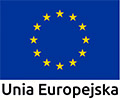The Righteous from the Treblinka area – Jadwiga Waszczuk
Jadwiga Waszczuk (1901-1988)
I was surprised, but also proud to learn about my grandmother Jadwiga Waszczuk being posthumously awarded the title of the “Righteous Among the Nations” in July 2011. I don’t know the procedure of awarding the title by Yad Vashem, but I know that it took place at the request of Mrs Bina Hacohen, formerly Edzia Szpilman, rescued by Grandma. Unfortunately, this honourable distinction did not have any greater echo in the national media, so I would like to present the figure of Grandma at least a little bit.
She came from the small gentry typical for Podlasie. At the beginning of the 15th century, the Buczyński family, coat of arms Lubicz, received the village of Buczyn in Kosów Lacki parish from Prince Witold for their knightly merits. Buczyn, sometimes referred to as Buczyn Szlachecki, is their family nest to this day. They also had their properties in neighbouring villages – Ratyniec and Zalesie, where Grandma was born in 1901. She was the daughter of Franciszek Buczyński and Stefania Leszczyńska. The Leszczyńskis, coat of arms Wieniawa, are equally old gentry from nearby Leszczka. I don’t remember much of Grandma’s story from the time when she was young. I only remembered the atmosphere as if from “Pan Tadeusz” and the sentence repeated many times that it originated from the same family as the king of Poland. At that time I didn’t take it too seriously. However, when I became interested in the history of the family, I found out that this was really the case. The Leszczyński family from Podlasie settled here at the beginning of the 15th century. They were related to the influential and wealthy Leszczyński family from Greater Poland, from which King Stanisław Leszczyński came.
The marriage of Grandma with a young and, as it is still mentioned today, a very handsome neighbour of Zalesie – Czesław Waszczuk, who comes from a wealthy local peasant family, was considered a misalliance and scandal in the area. Perhaps this was one of the reasons that in the 1930s, after the birth of five children – Kazimiera (known as Danuta), Stefan, Eugeniusz, Jan and Alinka, they moved to Wegrów where, with great success, the Waszczuk family ran a textile shop. It seems that it was their vocation. There was no shortage of customers. The Waszczuk family quickly earned a reputation of solidity and honesty. They were doing well. Grandfather began building a large, elegant tenement in Warsaw Grochów.
Already, by then, Grandma was known as never refusing to help anybody in need. This was also the case in 1942. It was night when the Węgrów ghetto was being liquidated. Two Jewish neighbours then turned to her help – the wife and daughter of the local photographer Alter Szpilman. The younger, Edzia, was a schoolmate of my mother, Danuta. Grandma gave them clothes, allowed them to spend the night and arranged false papers for them, thanks to which they could pass as Poles and survive the war. Grandma also took food to and cared for Szpilman’s frail mother, who, after the family’s escape, hid in the attic of their previous home and died there of natural causes. It should be added that Grandma took a lot of risk. The punishment for helping the Jews in hiding was the death of the whole family.
Following the war, Edzia lived with Grandma in Warsaw and studied medicine. Throughout her studies she did not have to worry about housing and food. Grandma did not want compensation for help. Edzia remained friends with my mother, Danuta. Upon graduation, she left Poland. Later, mum tried to make contact with her, but to no avail.
I know that this was not the only time my grandparents helped the Jews who were repressed by the Germans and later by the communist authorities. In a similar way, Grandma also saved a few strangers – Jews who were being pursued on the streets of Węgrów. She took them into their home, gave them a change of clothes so that they would appear like members of her own household and then sat them down at the table together with her own children. When their pursuers entered the house, she would point them in a different direction. The escapees would then spend the night there and, in the morning, they would head for the forest. Their fate after that remains unknown. In the 1990s, several people told me that, in a particular newspaper, there was an interview with a Węgrów Jew from Canada who recalled that during the war, Czesław Waszczuk, my grandfather, had saved his life. I tried to find the text in the library, but in view of the vast amount of material, this work turned out to be overwhelming. I hope that this will be possible once the press yearbooks of these years have been converted from paper to digital form and made available for viewing.
Another example of selfless help given by my Grandma is the story of Kazimierz Karlsbad, known as a partisan leader in the Podlasie region. He was my uncle Stefan’s (who later was the Home Army soldier) and mother’s schoolmate. He recalls in his autobiography published in Canada that, immediately after the war, he was being pursued by the UB (Security Service). He had nowhere to go. The Waszczuk family took him into their home in Warsaw’s Grochów. He also acknowledges my Grandma’s financial support of his decision to escape the country illegally.
Czesław Waszczuk died straight after the war. Grandma, on her own, took on the task of completing the building of the tenement in Warsaw which my grandfather had commenced. The times were very difficult, but thanks to her extraordinary energy and stubbornness she succeeded. The house was elegant and unusual for the working Grochów – spacious, large flats, modern windows, central heating. Unfortunately, shortly after renting out the apartments, real estate was nationalised illegally. Grandma felt like its owner for the rest of her life. During the repairs she supervised the workers and enforced the proper execution of the work. She also fought with the administration, her dream was to regain lost property. My parents helped her. Until now, in the home archive, I have kept a pile of letters to various offices written by my father, Marian. Unfortunately, Grandma did not live to see the return of the house, which was won by her youngest daughter Alina only in free Poland.
Despite nationalisation, the family managed to keep three apartments in the tenement house – a Grandma’s one-room apartment and two two-room apartments of both daughters with families. For the first dozen years, all three apartments were made available to forced subtenants. The conditions were difficult. We had a shared kitchen and bathroom. We had to live somehow.
Grandma, as a former owner of the tenement house, was perceived by the authorities as an enemy of the people. She had no opportunity to find proper work. She took in piece-work to supplement her meagre disability pension. Whatever she earned she shared with those in need – often strangers. It would be called a “loan”, but only a small amount of the “loans” was ever paid back. Grandma did not care about it. I remember from my childhood that when I had done something wrong, Grandma defended me. The scenario was always the same. Mum was pulling out her belt, I and my brother hid behind Grandma, who was protecting us from lashes. And that was the end. Now, years later, I think that it was an evasion. There was no beating and the pedagogical effect was achieved. Anyway, we had Grandma every day. As I remember, she was always dining with our mother Danuta and although she had her own apartment, she spent whole days with us. Quiet, cheerful, she didn’t disturb anyone and didn’t interfere in the affairs of others. All the time she fought for the tenement house. As soon as the matter of regaining the old property was raised, her energy and strength of purpose returned. And she talked beautifully about her youth. I remember the joint Christmas Eve always organised in our apartment, by mother Danuta, who with time took over from Grandma the role of the head of the family. I often remember how parents sang carols together. And the repertoire was very rich…
Marek Strasz, the son of Marian and Danuta née Waszczuk, the grandson of Jadwiga Waszczuk
Warning: Attempt to read property "post_title" on null in /home/users/muzeumtreblinka/public_html/wp-content/plugins/js_composer/include/helpers/helpers.php on line 63
Warning: Trying to access array offset on false in /home/users/muzeumtreblinka/public_html/wp-content/themes/cesis/functions/cesis_vc_templates/vc_single_image.php on line 174





